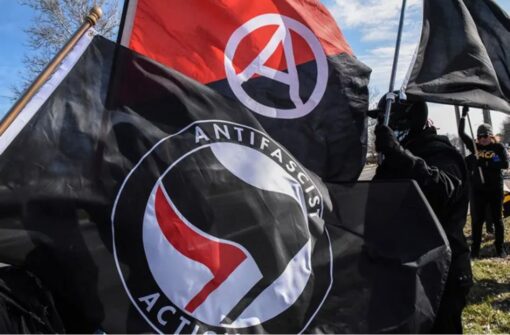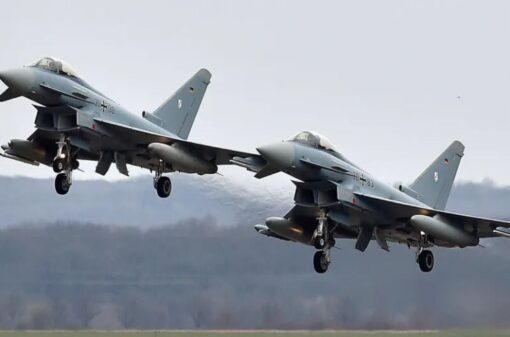Hungary has intensified calls for the European Union to adopt an official Antifa terrorist designation, echoing recent statements from the United States.
Prime Minister Viktor Orbán described the movement as a “clear threat to European stability” and pressed the EU to consider a coordinated policy response.
This push reflects Hungary’s broader effort to align EU security measures with those of allied nations, while simultaneously highlighting concerns about the rise of politically motivated violence within the bloc.
The Hungarian government has framed its proposal as a matter of safeguarding citizens and ensuring that extremist networks cannot operate with impunity across borders.
The proposal for an Antifa terrorist designation has generated intense debate among EU members.
Proponents argue that Antifa’s loosely organized networks have been linked to acts of property destruction, intimidation, and violent confrontations with law enforcement in multiple European cities.
Officials in Budapest point to several high-profile incidents in Germany, France, Italy, and Hungary itself where activists associated with Antifa allegedly engaged in planned attacks against far-right groups and political gatherings.
“We cannot allow ideological extremism to masquerade as activism,” said a Hungarian government spokesperson. “Designating Antifa as a terrorist organization is a necessary step to protect our societies.”
Critics, however, contend that labeling a decentralized network as a terrorist entity risks setting a dangerous precedent for freedom of expression.
Antifa, by its nature, does not have a central hierarchy or formal leadership structure. This ambiguity has led some EU legal analysts to question whether a blanket Antifa terrorist designation could inadvertently criminalize legitimate protests or political expression.
“The danger is in conflating violent fringe actors with the wider anti-fascist movement,” said a legal scholar based in Brussels. “Such a designation must be carefully defined to avoid overreach.”
Despite these concerns, Hungary has persisted in its campaign. Prime Minister Orbán has cited U.S. precedents, noting that President Donald Trump labeled Antifa as a terrorist organization earlier this year.
Hungarian officials argue that the EU risks leaving itself vulnerable if member states fail to adopt uniform standards for countering extremist violence.

“Security in Europe is only as strong as its weakest link,” Orbán remarked at a recent press conference. “We must act collectively, and the Antifa terrorist designation is central to that strategy.”
Within the EU, member states are divided. Eastern European countries such as Poland and the Czech Republic have expressed tentative support for Hungary’s proposal, citing domestic incidents involving violent left-wing activists.
In contrast, Western European nations, including Germany, the Netherlands, and Spain, have urged caution. These countries emphasize the importance of preserving civil liberties and warn that broad definitions of terrorism could infringe on democratic rights. The European Commission has indicated that it is reviewing Hungary’s request but has yet to announce any formal position.
Hungarian officials maintain that the Antifa terrorist designation is not intended to suppress peaceful activism but rather to provide law enforcement with tools to target organized networks engaging in deliberate violence.
Intelligence reports cited by the Hungarian Interior Ministry indicate that some Antifa-linked actors have coordinated across borders, sharing tactics for sabotage and protest disruption.
These findings, officials say, justify a unified EU response that ensures consistent enforcement measures across member states.
The debate over the Antifa terrorist designation also intersects with broader geopolitical considerations. Hungary has sought to demonstrate alignment with allied nations on issues of extremism and security.
By advocating for this classification at the EU level, Budapest signals a commitment to countering both domestic and international threats. Critics warn, however, that such measures could be politicized, potentially used to target ideological opponents under the guise of counterterrorism.
“We must distinguish between genuine threats and political labeling,” said a policy analyst based in Brussels. “Otherwise, the EU risks eroding trust in its institutions.”
Public reaction within Hungary has been largely supportive of Orbán’s stance. Opinion polls suggest that a majority of Hungarian citizens view Antifa as a destabilizing influence and support stronger measures against extremist networks.
Demonstrations in Budapest and other cities have called for decisive EU action, with banners explicitly urging the bloc to adopt the Antifa terrorist designation.
Law enforcement authorities have stated that these measures would help prevent escalation of violence during political demonstrations, particularly in urban centers prone to clashes between opposing groups.
International observers have noted the potential ripple effects of an EU-wide Antifa terrorist designation. Legal experts suggest that it could influence policies beyond Europe, including counterterrorism legislation in North America and other allied nations.
A designation could also impact financial and travel restrictions for individuals linked to Antifa networks, potentially curbing funding and cross-border mobility.
Some analysts warn, however, that enforcing such a designation will be complex given the movement’s decentralized nature, and that efforts will require careful monitoring to avoid unintended consequences.
Despite these challenges, Hungarian authorities continue to advocate strongly for the measure. Orbán and his ministers have scheduled meetings with counterparts in Austria, Poland, and the Baltic states to build support ahead of formal EU discussions.
Officials emphasize that the Antifa terrorist designation is intended as a proactive security measure rather than a punitive political statement. “Our goal is to protect citizens and ensure that extremist violence is not tolerated in Europe,” said a Hungarian diplomat.
As the debate unfolds, the European Union faces a difficult balancing act. The bloc must weigh the legitimate security concerns highlighted by Hungary against the potential risks to civil liberties and democratic norms.
Whether the EU ultimately endorses Hungary’s call for an Antifa terrorist designation remains uncertain, but the discussion has already highlighted tensions between national security priorities and the protection of political freedoms.
Policymakers will need to carefully navigate these considerations to develop a strategy that addresses violence without undermining fundamental rights.
Legal scholars continue to stress the importance of defining criteria for any terrorist designation carefully. For Hungary, the focus remains on ensuring that the Antifa terrorist designation targets demonstrably violent actors rather than broader ideological movements.
In parallel, European intelligence services are expected to increase surveillance and information sharing on groups that exhibit coordinated violent behavior, regardless of ideological affiliation.
Ultimately, Hungary’s push reflects a broader European concern about political violence and the challenges of responding to decentralized activist networks.
The proposal for an Antifa terrorist designation represents both a policy and symbolic step, signaling Hungary’s commitment to security and its desire for a unified EU response.
As EU member states deliberate, the outcome could set a precedent for how democratic societies address loosely organized extremist movements in the future, balancing the need for safety with respect for civil liberties.


